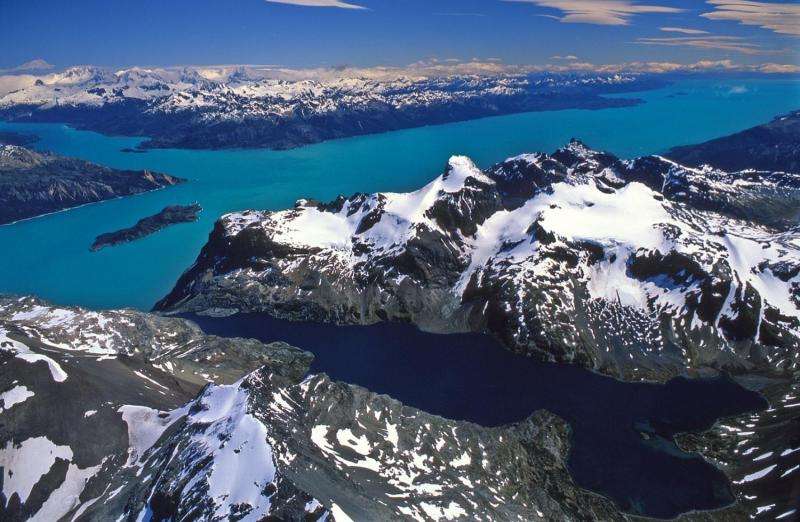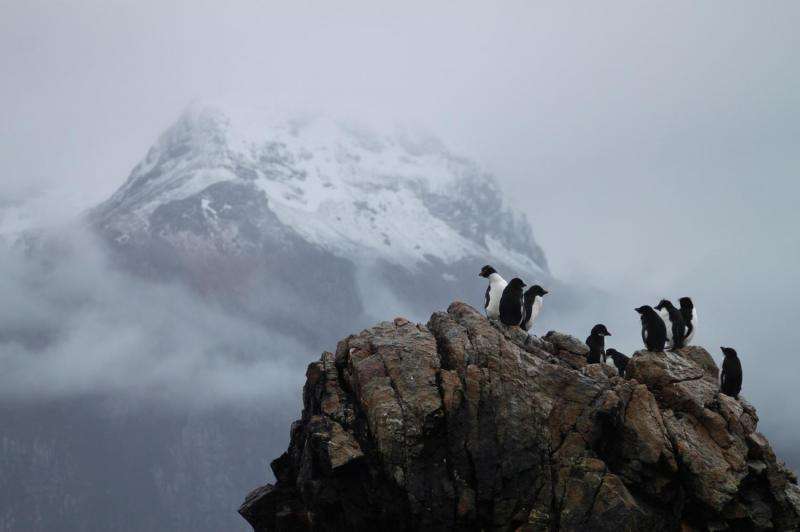The government of Chile announced today at the Our Oceans Summit in Valparaiso its plan to design a network of Marine Protected Areas for the purpose of safeguarding Patagonia's whales, dolphins, sea lions, sea birds and other coastal biodiversity, an initiative that would expand the country's protected waters by 100,000 square kilometers (more than 38,000 square miles). Credit: Guy Wenborne
The Government of Chile announced today at the Our Oceans Summit in Valparaiso its plan to design a network of Marine Protected Areas for the purpose of safeguarding Patagonia's whales, dolphins, sea lions, sea birds and other coastal biodiversity, an initiative that would expand the country's protected waters by 100,000 square kilometers (more than 38,000 square miles).
With a 3-year funding commitment from the Waitt Foundation, the new MPA network will enable Chile to meet its target of protecting 10 percent of relevant ecosystems by 2020, a goal in keeping with the Aichi Targets.
"A pending task of this Ministry is the protection of coastal ecosystems, where there is effective competition for its use," said Pablo Badenier, Minister of Environment. "This is why the collaboration and the road we expect to follow with WCS with the support of the Waitt Foundation is so valuable. The conservation of the Patagonian fjords deserves to have a better understanding and a better valuation."
The new MPA network will protect an eco-region of southern Chile that is home to many marine species, including the blue whale, humpback whale, and southern right whale. Other marine mammals include the Chilean dolphin, Peale's dolphin, Commerson's dolphin, southern sea lions, South American fur seals, southern elephant seals, and leopard seals. Bird species that inhabit this region include the black-browed albatross, the grey-headed albatross, and Magellanic penguins. This region also supports important industries including fisheries, aquaculture, and tourism.
Rock hopper penguins along southern Chile's Patagonia coast. The region is the focus of a newly announced plan to create a marine protected area network. Credit: Alejandro Vila/WCS
"The creation of a new Marine Protected Area network will complement an existing series of terrestrial protected areas, both of which will help conserve the amazing biodiversity of Chile's coastal waters as well as protect the one of the world's most extensive regions of fjords, channels, islands, and peninsulas," said Dr. Barbara Saavedra, Director of WCS's Chile Program.
Chile is currently setting the groundwork for the new MPA network through the establishment of a new law that will empower the Ministry of Environment to design, create, and monitor the new network. The law will also create a new agency—the Biodiversity and Protected Area's Service—that will guide and oversee the effective management of marine protected areas.
Said Dr. Caleb McClennen, Executive Director of WCS's Marine Conservation Program: "We applaud Chile for moving forward with this initiative to safeguard the country's rich marine life, and the Waitt Foundation for its crucial financial assistance and partnership in this endeavor. The new plan will also serve to integrate existing terrestrial parks and reserves with coastal and oceanic resources and help Chile meet its global commitments to conserve 10 percent of its oceans."
WCS has had a long history in helping to protect Chile's terrestrial and marine biodiversity. WCS helped to create and manage Karukinka Natural Park, a protected area more than 735,000 acres in size containing peatbogs, wetlands, and the world's southernmost old-growth forest. WCS has also conducted biodiversity surveys of Chile's Admiralty Sound, and helped to study the blue whale population of the Gulf of Corcovado. WCS has also worked with the Government in the design of a plan to establish open standards for effective management of future national protected area's system.
Said Mr. Ted Waitt, Founder and Chairman of the Waitt Foundation and Co-Founder Gateway, Inc: "The Waitt Foundation aims to support governments in achieving their own sustainability goals, working together to restore ocean health through marine parks and sustainable fishing policy. As such, we could not be more proud and humbled to partner with the Government of Chile and WCS in the work to protect the oceanic waters of the Patagonian Fjords: a crown jewel not just for Chile, but for all mankind."
The Waitt Foundation has been supporting efforts to expand marine protected areas in Argentine Patagonia since 2012, which has had great success in recent years, adding 31,000 square kilometers (11,969 square miles) of protected ocean. This new commitment is a great opportunity to further expand conservation efforts in the region.
Provided by Wildlife Conservation Society

























